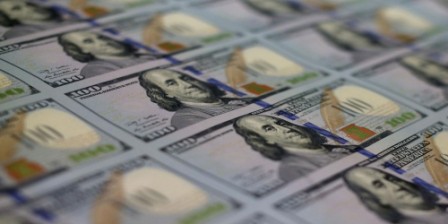Dollar dented by more weak US data
The dollar sank further in Asia on Friday as another round of disappointing US data cast further doubt on the chances of a mid-year Federal Reserve interest rate hike.
The greenback was changing hands at 119.00 yen in midday Tokyo trading, slightly down from 119.04 yen in New York and well off the 119.33 yen in Tokyo earlier Thursday.
The euro strengthened to $1.0773 and 128.20 yen against $1.0761 and 128.10 yen in US trade, as investors watch the slow progress in Greece’s bailout talks with its international creditors.
On Thursday, fresh US data showed housing starts rose less than expected in March, while initial jobless claims, a sign of the pace of layoffs, increased well above estimates to their highest level in six weeks.
The tepid figures came a day after figures showed US industrial production fell in March twice as much as expected, while the New York Fed said its Empire State index on manufacturing activity plunged into negative territory in April for the first time since December.
Disappointing US retail sales earlier in the week — as well as weak Chinese economic growth — also weighed on sentiment and dollar demand.
A speech by Atlanta Fed chief Dennis Lockhart, a voting member of the Federal Open Market Committee, the central bank’s policy arm, did little to inspire confidence in a mid-year rate hike.
“A murky economic picture is not an ideal circumstance for making a major policy decision” on beginning to raise rates, he said, insisting he was presenting his own views and not speaking for the policy board or the Fed.
Expectations earlier in the year had been for a rise as early as June as the world’s top economy showed signs of strength but a string of weak indicators have pushed that timetable back, pushing the dollar lower.
The euro held up Friday despite worries over Greece after the International Monetary Fund refused to give it more time to repay its loans, while the country’s Prime Minister Alexis Tsipras said he was talking to the Orthodox Church about using clerical assets to boost state coffers.
Related Posts

